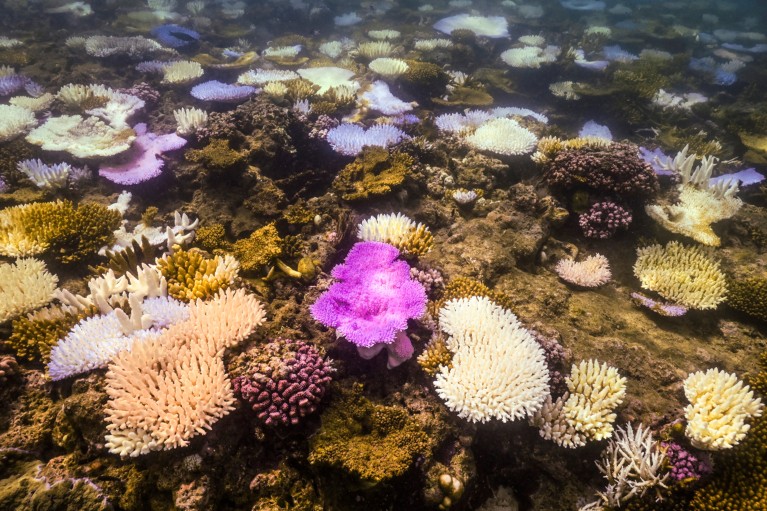Coral die-off marks Earth’s first climate ‘tipping point’, scientists say
Summary
Surging global temperatures have caused widespread coral bleaching and mortality, pushing warm-water coral reef ecosystems past what researchers now call a planetary tipping point. A University of Exeter-led assessment finds the fourth global bleaching event (which began in January 2023) has affected an estimated 84% of the planet’s coral ecosystems, with vast die-offs including large losses on Australia’s Great Barrier Reef.
The report warns that, unless greenhouse-gas emissions are rapidly cut, other Earth systems (ice sheets, the Amazon, major ocean currents) could also reach irreversible tipping points.
Key Points
- Ocean warming and repeated marine heatwaves triggered the fourth global coral bleaching event starting January 2023.
- Researchers estimate that more than 84% of coral ecosystems worldwide experienced bleaching during this event.
- Widespread coral death — including extensive losses on the Great Barrier Reef — has led scientists to declare coral collapse the first observed planetary climate ‘tipping point’.
- The University of Exeter report assesses roughly 20 potential planetary tipping points, such as ice-sheet collapse and Amazon dieback.
- Without swift reductions in greenhouse-gas emissions, other systems are at heightened risk of crossing irreversible thresholds.
- The report contrasts ecological tipping points with social/economic positive tipping opportunities (for example clean-energy adoption), which are progressing but not fast enough to prevent harms.
- The finding reframes tipping points from a future threat to a present reality, increasing the urgency for mitigation, adaptation and policy action.
Why should I read this?
Short version: corals have just gone over the edge — and that matters to everyone. If you care about coastal communities, fisheries, biodiversity or how climate impacts cascade through societies, this piece tells you why scientists have gone from warning about future tipping points to saying we’ve hit one. Read it to understand how bad this is and why it ramps up the urgency for action.
Context and Relevance
This article is significant because it marks a shift in the climate narrative: tipping points are no longer only theoretical thresholds but an observed, large-scale ecological collapse. Coral reefs provide food, livelihoods, tourism income and natural coastal protection; their loss will have cascading ecological, economic and social effects. The report connects coral collapse to broader planetary risks and signals an urgent need for deeper, faster emissions cuts alongside targeted conservation and adaptation measures.

